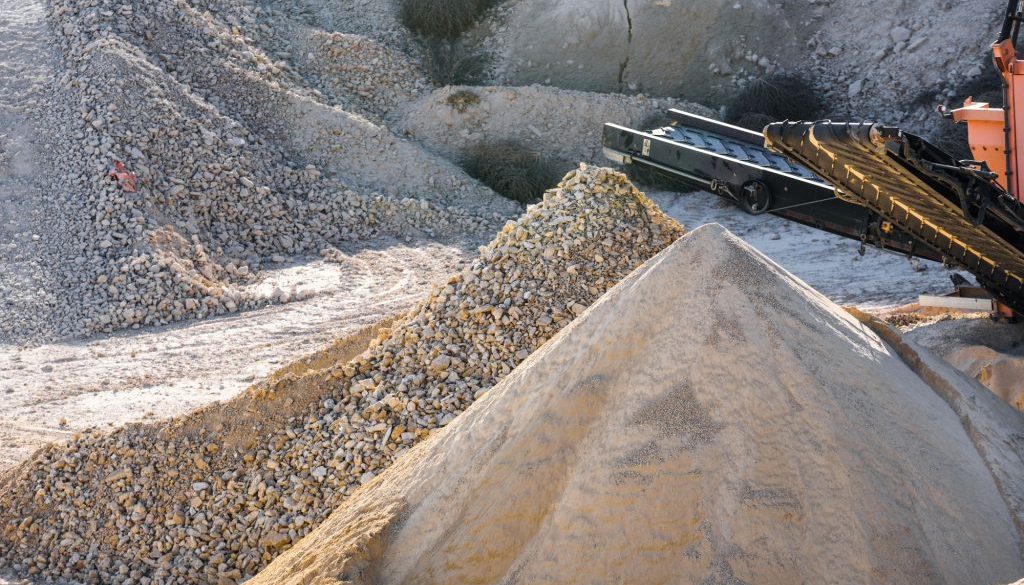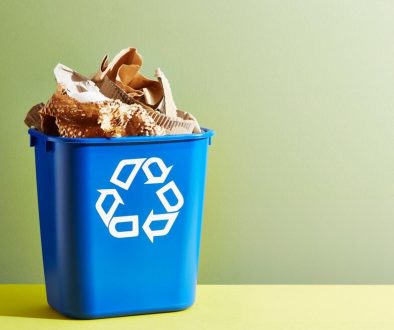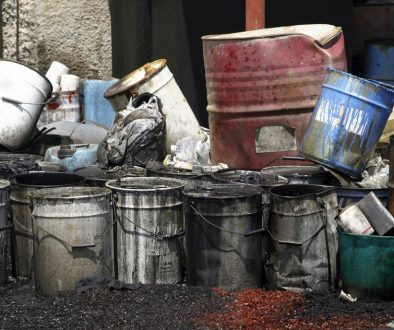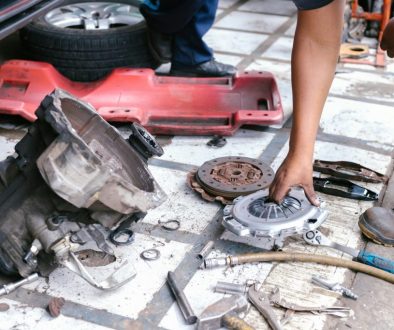In recent years, the construction sector has experienced a growing demand for sustainable solutions that promote environmental conservation and resource efficiency. One area where this change has become increasingly important is with aggregates – the essential constituent for various construction applications, such as concrete, asphalt, and drainage systems. Sustainable aggregates, derived from recycled or secondary sources, provide numerous environmental and economic benefits compared to their primary counterparts, helping to reduce the industry’s carbon footprint, minimise resource depletion, and promote a circular economy.
As a family-run skip hire and aggregate company servicing Staffordshire, Enviro Skip Hire are dedicated to promoting responsible and sustainable practices within the construction industry, supporting our clients and local communities in developing greener, more efficient construction solutions.
1. The Benefits of Sustainable Aggregates
Incorporating sustainable aggregates into your construction projects provides numerous environmental and economic advantages:
- Conservation of natural resources: By utilising sustainable aggregates derived from recycled or secondary sources, we can reduce the demand for virgin materials, minimising the depletion of non-renewable natural resources such as sand, gravel, and crushed stone.
- Waste reduction: Transforming waste materials into sustainable aggregates helps divert vast amounts of construction and demolition waste from landfills, positively impacting the environment.
- Reduced energy consumption and carbon emissions: The production of sustainable aggregates often requires less energy than extracting and processing primary aggregates, resulting in lower carbon emissions and an overall reduced environmental impact.
- Cost savings: Sustainable aggregates can often be more cost-effective than their primary counterparts due to reduced transportation distances, lower material costs, and potential savings on waste disposal fees.
2. Types of Sustainable Aggregates and Their Applications
Numerous types of sustainable aggregates can be employed in a wide range of construction applications:
- Recycled concrete aggregate (RCA): Obtained from the processing of crushed concrete waste, RCA is a versatile material suitable for new concrete production, sub-base layers, road construction, and drainage systems.
- Recycled asphalt pavement (RAP): Produced by milling or grinding used asphalt, RAP can be directly reused in new asphalt mixtures, road repairs, or base and sub-base layers.
- Recycled glass aggregate: Crushed and processed used glass can be incorporated into concrete mixtures, offering a sustainable alternative to traditional aggregate materials while adding aesthetic value to the final product.
- Manufactured aggregates: By-products from other industries, such as furnace slag and fly ash, can serve as valuable sustainable aggregates for concrete and asphalt production, contributing to overall resource efficiency.
3. Responsible Sourcing of Sustainable Aggregates
To ensure that the sustainable aggregates used in your projects align with eco-friendly practices and contribute to a more circular economy, it is essential to adopt responsible sourcing practices:
- Choose reliable suppliers: Partner with trustworthy and reputable suppliers, like ours, who prioritise sustainable practices and have the necessary certifications proving their commitment to environmental protection.
- Seek transparency and traceability: Obtain detailed information from suppliers regarding the source, processing methods, and environmental credentials of the sustainable aggregates you purchase to guarantee that they conform with your sustainability objectives.
- Opt for locally produced materials: Sourcing sustainable aggregates from local suppliers helps reduce transportation-related carbon emissions and supports the local economy.
4. Meeting Environmental Standards and Regulations
Compliance with environmental standards and regulations is crucial when implementing sustainable aggregates in your construction projects:
- Understand relevant legislation: Familiarise yourself with local and international laws regulating the use of sustainable aggregates in construction applications to ensure compliance and avoid legal consequences.
- Meet quality standards: Where applicable, use sustainable aggregates that meet the necessary technical and quality standards, such as the British Standards (BS) or European Norms (EN), to preserve the structural integrity and durability of your project.
- Obtain necessary permits: Ensure that your use of sustainable aggregates in construction projects adheres to relevant planning and building regulations, and acquire any necessary permits or approvals.
5. Innovations in Sustainable Aggregates
Continuous advancements in technology and processes have led to innovative approaches in the production and utilisation of sustainable aggregates:
- Bio-based aggregates: Emerging bio-based materials, such as agricultural waste, bamboo, and hemp, are being explored as alternatives to traditional aggregates, offering biodegradability and lower environmental impact.
- 3D-printed aggregates: Utilizing 3D printing technology, researchers and engineers are developing novel aggregates with precise geometries, tailored compositions, and improved performance characteristics, opening new possibilities for sustainable construction.
- Carbon-negative aggregates: Some innovative approaches aim to produce aggregates that actively sequester carbon dioxide during their lifecycle, helping to mitigate greenhouse gas emissions and combat climate change.
6. Lifecycle Assessment and Optimization
Conducting comprehensive lifecycle assessments (LCAs) of sustainable aggregates helps evaluate their environmental performance across various stages, from extraction and production to use and disposal:
- Environmental footprint analysis: LCAs quantify the environmental impacts, such as carbon emissions, energy consumption, and resource depletion, associated with different types of aggregates, enabling informed decision-making and optimisation strategies.
- Continuous improvement: Using LCA data, stakeholders can identify opportunities for optimising processes, reducing environmental burdens, and enhancing the overall sustainability of aggregate production and utilisation.
- Integration of circular economy principles: LCAs facilitate the integration of circular economy principles by assessing the potential for recycling, reuse, and repurposing of aggregates at the end of their service life, closing material loops and minimising waste generation.
Conclusion
Sustainable aggregates offer a viable and eco-friendly solution within the construction industry, enabling the sector to reduce its environmental impact while promoting circular economy principles. By understanding the benefits, types, and applications of sustainable aggregates, and ensuring responsible sourcing and compliance with environmental standards and regulations, businesses and homeowners can contribute to a more sustainable future for all.
As a family-run skip hire and aggregate company servicing Staffordshire, Enviro Skip Hire provides sustainable solutions for our clients and local communities. By offering a wide range of sustainable aggregates, we aim to support the construction industry’s shift towards greener practices. Contact us today to hire a skip in Sandbach or utilise our other services!




